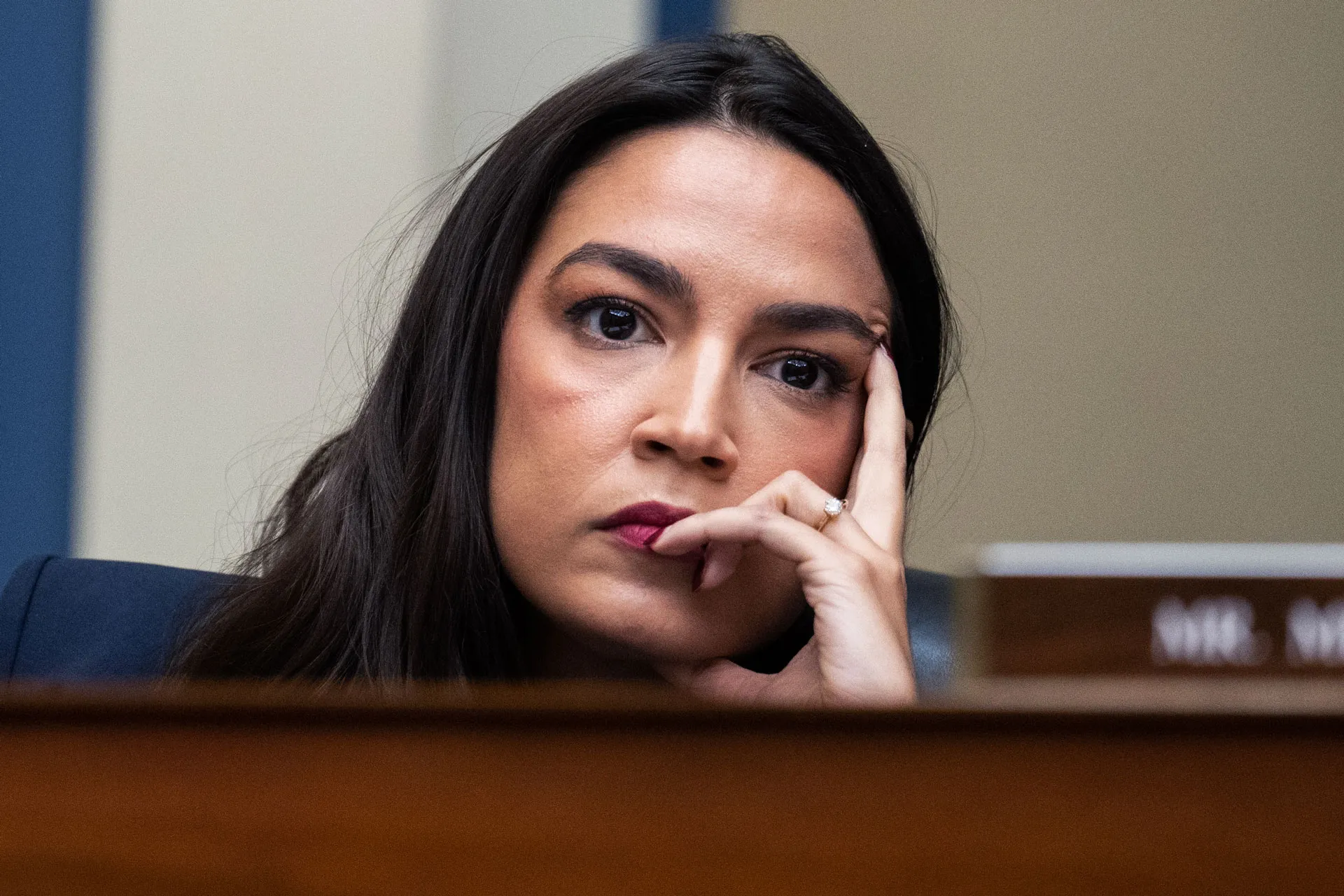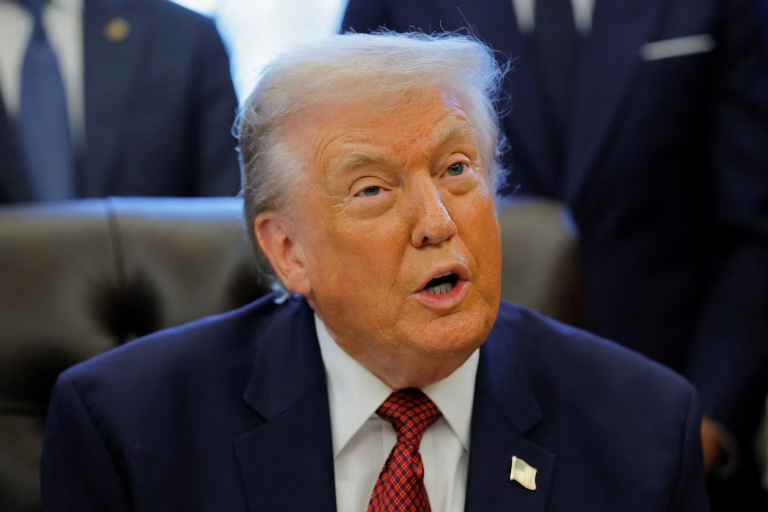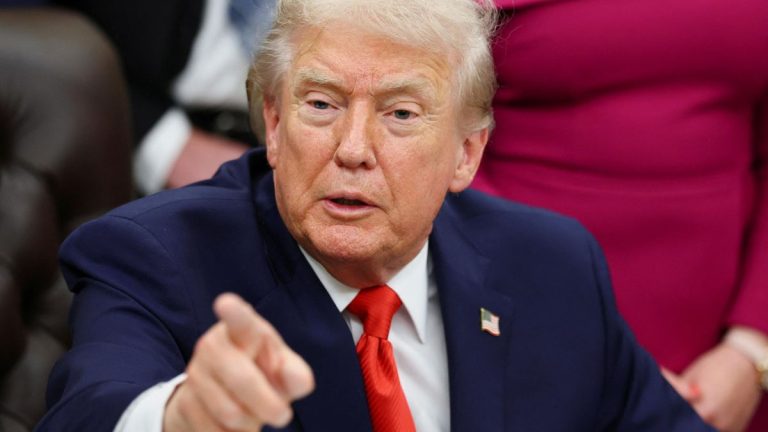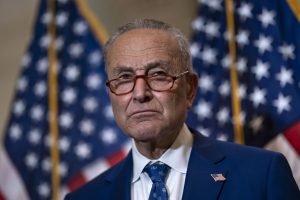Rep. Alexandria Ocasio-Cortez, the high-profile New York Democrat known for her progressive stances on taxation and social equity, was formally instructed by the House Ethics Committee on Friday to make additional payments related to her attendance at the 2021 Met Gala. The event, which took place in New York City’s famed Metropolitan Museum of Art, drew widespread attention after Ocasio-Cortez appeared in a striking green dress emblazoned with the message “tax the rich.” The appearance, part of a high-profile collaboration with Vogue, sparked conversation across media platforms about the role of public officials in social events and the ethics of accepting gifts.
The House Ethics Committee’s findings concluded that while Ocasio-Cortez made efforts to comply with congressional rules governing the acceptance of gifts, she ultimately fell short in several areas. According to the panel, the congresswoman “impermissibly accepted a gift of free admission to the 2021 Met Gala for her partner and failed to pay full fair market value for some of the items worn to the event.” These items included a combination of clothing, hair and makeup services, and accommodations provided by event organizers, all of which carry substantial market value.
Ocasio-Cortez attended the Met Gala as a guest of Vogue, which covered a range of expenses for her and her partner. The event tickets alone were valued at approximately $35,000, with additional services—including bespoke hair and makeup styling, designer clothing, and hotel accommodations—adding significantly to the total cost. While the congresswoman enlisted legal counsel to ensure she adhered to House ethics rules, the committee determined that the payments made to cover these expenses were both delayed and insufficient in certain respects.
The Ethics Committee issued a detailed 31-page report outlining the findings. It noted that while Ocasio-Cortez made sincere efforts to comply with ethical guidelines, the failure to fully cover the fair market value of the gifts constituted a breach of House rules. The report emphasized the importance of timely and complete disclosure of gifts and payments to avoid even the appearance of impropriety.
In response, Ocasio-Cortez’s office issued a statement underscoring the congresswoman’s willingness to remedy the situation. Mike Casca, her chief of staff, said, “The Congresswoman appreciates the Committee finding that she made efforts to ensure her compliance with House Rules and sought to act consistently with her ethical requirements as a Member of the House. She accepts the ruling and will remedy the remaining amounts, as she’s done at each step in this process.”
The ruling comes amid other ongoing ethics investigations into members of Congress, signaling the committee’s continued focus on maintaining transparency and accountability within the legislative branch. In addition to Ocasio-Cortez, the House Ethics Committee issued reports regarding Reps. Mike Kelly of Pennsylvania, Sheila Cherfilus-McCormick of Florida, and Henry Cuellar of Texas, all facing separate inquiries into potential violations of congressional rules.
Rep. Mike Kelly
Pennsylvania Republican Mike Kelly received a formal reproval from the House Ethics Committee following a yearslong investigation into allegations of insider trading related to his wife’s purchase of stock in Cleveland-Cliffs, a steel company operating in his congressional district. The panel’s report stated that while it found no evidence that Kelly “knowingly or intentionally caused his spouse to trade based on insider information,” the congressman’s failure to acknowledge the seriousness of the allegations constituted a breach of the code of official conduct.
The committee recommended that Kelly and his wife divest any holdings in Cleveland-Cliffs before he takes further official actions related to the company. According to the report, Kelly took multiple actions that could potentially benefit Cleveland-Cliffs while his spouse held stock, raising concerns about conflicts of interest, even if unintentional.
Kelly responded by emphasizing the personal and professional strain the prolonged investigation had caused, particularly on the local workforce tied to Cleveland-Cliffs. “Throughout this process, I have fought for the 1,400 workers at the plant, I’ve spoken with these workers, and they appreciate the hard work we have done to fight for those jobs and for Butler,” he said. The congressman also expressed frustration with the duration of the inquiry, noting that it had spanned nearly five years.
Rep. Sheila Cherfilus-McCormick
Meanwhile, the House Ethics Committee also announced that it had reauthorized an investigative subcommittee to continue its review of allegations against Rep. Sheila Cherfilus-McCormick, a Democrat representing Florida. The inquiry stems from a referral by the Office of Congressional Ethics in May 2025 and includes claims that Cherfilus-McCormick may have improperly accepted campaign contributions tied to official actions and requested community project funding for a for-profit entity.
The south Florida congresswoman has previously faced scrutiny regarding her campaign activities and the use of her congressional office. Earlier this year, a Florida state agency sued a company owned by her family, alleging overcharging of nearly $5.8 million for pandemic-related services and failure to return funds. Cherfilus-McCormick emphasized that the continuation of the ethics review does not constitute a determination of wrongdoing. “I fully respect the process and remain committed to cooperating with the Committee as it works to bring this inquiry to a close,” she said.
Rep. Henry Cuellar
Rep. Henry Cuellar, a Democrat from Texas, is also under review by the House Ethics Committee. Cuellar faces multiple federal indictments, including charges of bribery, conspiracy, and money laundering, which have prompted the committee to reauthorize its investigation into his conduct as a member of Congress. The committee noted that the existence of dual investigations presents unique challenges and stressed that an ongoing inquiry does not imply guilt or a violation of House rules. Cuellar’s office did not provide an immediate comment regarding the ethics review.
Implications for Congressional Ethics
The ruling against Ocasio-Cortez illustrates the complex intersection between high-profile social appearances and congressional ethics. While attendance at public events such as the Met Gala can serve to elevate a politician’s profile and highlight causes they champion, it also introduces potential conflicts related to the acceptance of gifts and the need for strict adherence to disclosure requirements. The Ethics Committee’s report highlights the necessity for elected officials to navigate these spaces carefully, ensuring that public trust is maintained and that actions remain consistent with House rules.
Experts note that such cases underscore the broader challenges faced by members of Congress in balancing public visibility with compliance obligations. “High-profile appearances are a double-edged sword,” said Dr. Helena Ruiz, a political ethics analyst at Georgetown University. “They can bring attention to important issues but also open the door to questions about the appropriateness of accepting benefits from private entities, especially when those benefits are expensive or highly curated.”
The Ocasio-Cortez ruling may set a precedent for future guidance related to congressional attendance at cultural or high-profile events. While she acted in consultation with legal advisors and took steps to correct discrepancies, the committee emphasized the importance of proactive and timely payment for any goods and services received in connection with such appearances. The report further stressed that delayed compliance, even when unintentional, can still constitute a breach of ethical standards.
Public and Political Reactions
Public reaction to the ruling has been mixed, with supporters emphasizing that Ocasio-Cortez ultimately sought to rectify the payments and acted transparently. Critics, however, have seized on the issue to question whether members of Congress can genuinely participate in elite social events without raising ethical concerns. Social media platforms were flooded with discussion about the Met Gala, the dress, and what the ruling means for congressional ethics oversight.
Some political commentators argue that the focus on Ocasio-Cortez may be amplified because of her outspoken progressive platform and high public visibility. “Any misstep by a figure like Ocasio-Cortez is magnified in the media,” said Jordan Kepler, a senior editor at Capitol Watch. “The scrutiny here is as much about her profile as it is about the technical compliance with ethics rules.”
Despite the controversy, the Ethics Committee’s decision underscores a key point: members of Congress are expected to comply fully with gift rules, even when participation in high-profile cultural events is involved. The panel’s decision ensures that Ocasio-Cortez, and by extension other members of Congress, are reminded of the importance of fairness and transparency when benefiting from goods or services offered by outside organizations.
Conclusion
The case involving Rep. Alexandria Ocasio-Cortez highlights the ongoing tension between public service, personal visibility, and adherence to ethical standards. While the congresswoman made earnest efforts to comply with House rules, the Ethics Committee found that she fell short in timely and complete payment for her Met Gala attendance. She has accepted the committee’s findings and will make the necessary adjustments to rectify the payments.
In a broader context, the committee’s reports on Reps. Mike Kelly, Sheila Cherfilus-McCormick, and Henry Cuellar reinforce the House Ethics Committee’s continued vigilance in upholding accountability and transparency among members. These cases serve as reminders that ethical obligations extend beyond financial transactions to include the careful management of both public perception and private benefits.
As lawmakers navigate these challenges, the expectation is clear: adherence to ethics rules must remain uncompromised, and timely action is required to maintain the public’s trust. The Ocasio-Cortez ruling will likely be referenced in future discussions about gift rules, the participation of elected officials in high-profile cultural events, and the broader responsibilities of public office in maintaining ethical integrity.

Emily Johnson is a critically acclaimed essayist and novelist known for her thought-provoking works centered on feminism, women’s rights, and modern relationships. Born and raised in Portland, Oregon, Emily grew up with a deep love of books, often spending her afternoons at her local library. She went on to study literature and gender studies at UCLA, where she became deeply involved in activism and began publishing essays in campus journals. Her debut essay collection, Voices Unbound, struck a chord with readers nationwide for its fearless exploration of gender dynamics, identity, and the challenges faced by women in contemporary society. Emily later transitioned into fiction, writing novels that balance compelling storytelling with social commentary. Her protagonists are often strong, multidimensional women navigating love, ambition, and the struggles of everyday life, making her a favorite among readers who crave authentic, relatable narratives. Critics praise her ability to merge personal intimacy with universal themes. Off the page, Emily is an advocate for women in publishing, leading workshops that encourage young female writers to embrace their voices. She lives in Seattle with her partner and two rescue cats, where she continues to write, teach, and inspire a new generation of storytellers.









